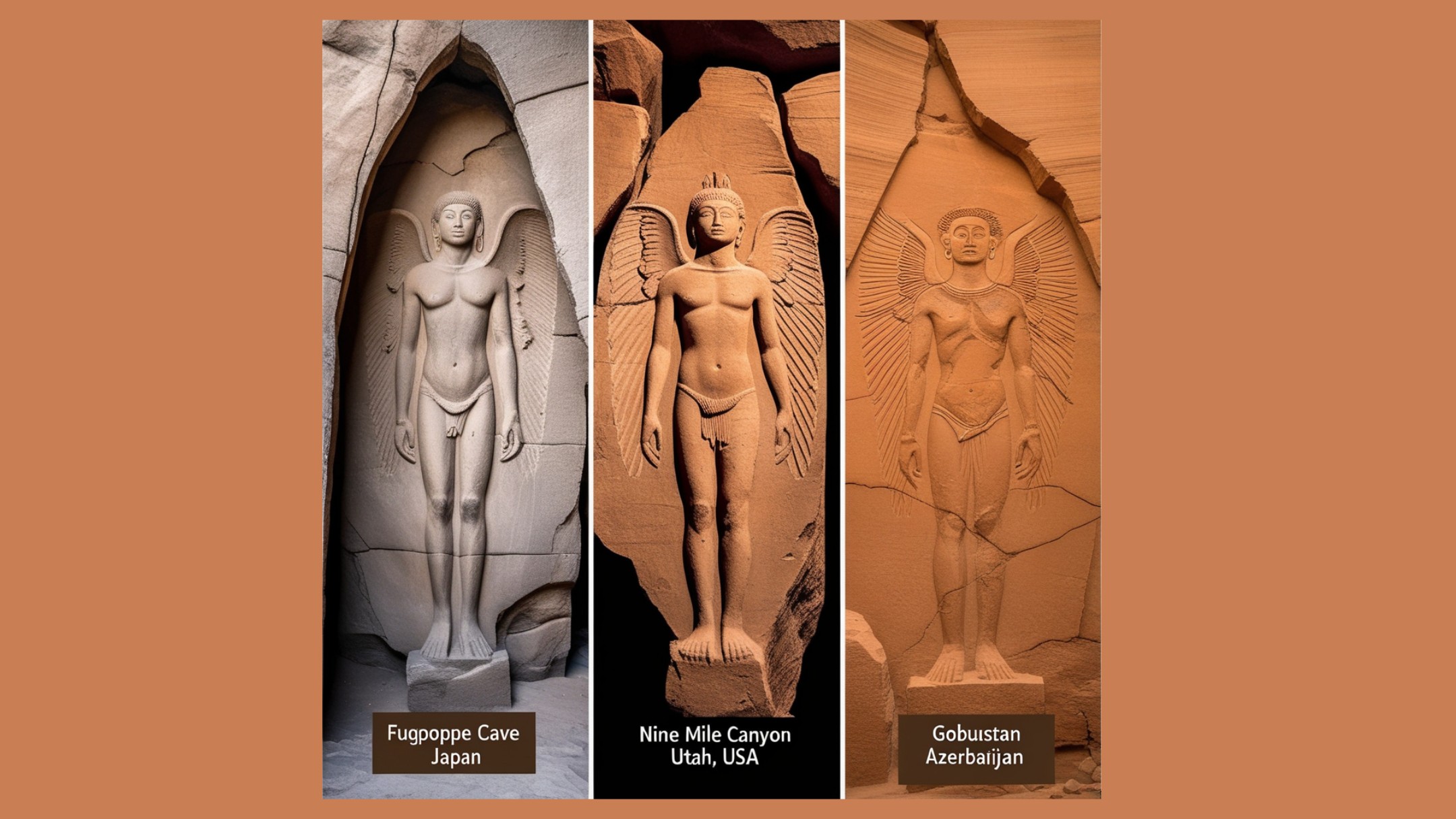Historic Winged Petroglyphs: A world Mystery
Historic Winged Petroglyphs: A world Mystery
Blog Article
Around the world, historic petroglyphs showcasing winged or traveling figures spark fascination and discussion. Located in disparate locationsâÂÂFugoppe Cave in Japan, Nine Mile Canyon in Utah, USA, and Gobustan in AzerbaijanâÂÂthese carvings, designed A large number of a long time apart, share a strikingly similar motif. What do these winged beings represent?
In Japan's Fugoppe Cave, relationship back again 7,000 a long time, human-like figures with wing-like extensions suggest spiritual or shamanic importance. Similarly, the Nine Mile Canyon petroglyphs, produced one,000âÂÂtwo,000 yrs in the past by Indigenous American cultures, depict anthropomorphic figures that might symbolize spiritual messengers or shamans. Meanwhile, AzerbaijanâÂÂs Gobustan rock art, approximately ten,000 decades old, characteristics winged figures assumed to depict mythological deities or divine beings.

Theories relating to this shared imagery range from impartial progress driven by universal human experiences to the potential of historic cultural exchanges. No matter, these carvings emphasize a deep human fascination with flight, transcendence, and spirituality, providing a glimpse to the shared imagination of our ancestors.
Check out this intriguing thriller even more and uncover humanityâÂÂs historical connections etched in stone. Report this page